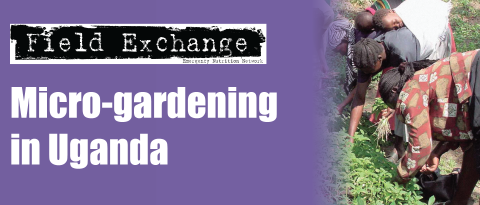Antioxidant Role in Preventing Kwashiorkor
Summary of published research1

A village of mothers waiting to enroll their children in Chipalonga
A recent study set out to evaluate the efficacy of antioxidant supplementation in preventing kwashiorkor, in a population of Malawian children at high risk of developing kwashiorkor. It has long been proposed that kwashiorkor results from an imbalance between the production of free radicals and their safe disposal. The theory is supported by the observations that blood concentrations of vitamin E derivatives - glutathione and red cell antioxidant enzymes - are lower in children with kwashiorkor than in marasmic children. Associations between oxidative stress and kwashiorkor indicate that antioxidant depletion may cause kwashiorkor and its onset may, therefore, be prevented with antioxidant supplementation.
The study was a prospective double blind, placebo controlled trial, randomised by household and conducted in eight villages in rural southern Malawi. Overall, 2,372 children aged 1-4 years in 2,156 households were enrolled and 2,332 children completed the trial. Children received daily supplementation with an antioxidant powder containing riboflavin, vitamin E selenium and N-acetylcysteine in a dose that provided about three times the recommended dietary allowance of each nutrient, or a placebo, for 20 weeks. The primary outcome measure was the incidence of oedema. Secondary outcome measures were the rates of change for weight and length and the number of days of infectious symptoms.

The antioxidant powder is mixed with water to make an orange coloured and flavoured drink
A total of 62 children developed kwashiorkor (defined by the presence of oedema), of whom 3.3% (39/1184) were in the antioxidant group and 1.9% (23/1188) were in the placebo group (relative risk 1.70, 95% confidence interval 0.98 to 2.42). The two groups did not differ in the rates of weight or height gain. Children who received antioxidant supplementation did not experience less fever, cough, or diarrhoea.
Antioxidant supplementation at the dose provided did not prevent the onset of kwashiorkor. This finding does not support the hypothesis that depletion of vitamin E, selenium, cysteine or riboflavin has a role in the development of kwashiorkor. The study suggests that antioxidant depletion may be a consequence rather than a cause of kwashiorkor.
The authors concluded that in addition to dietary and nutritional investigations, genetic mapping techniques to delineate host factors may prove useful to unravel the enigma of kwashiorkor.
1Ciliberto H et al (2005). Antioxidant supplementation for prevention of Kwashiorkor in Malawian children: randomised, double blind, placebo controlled trial. BMJ, vol 330, pp 1109- 1113
Imported from FEX website


